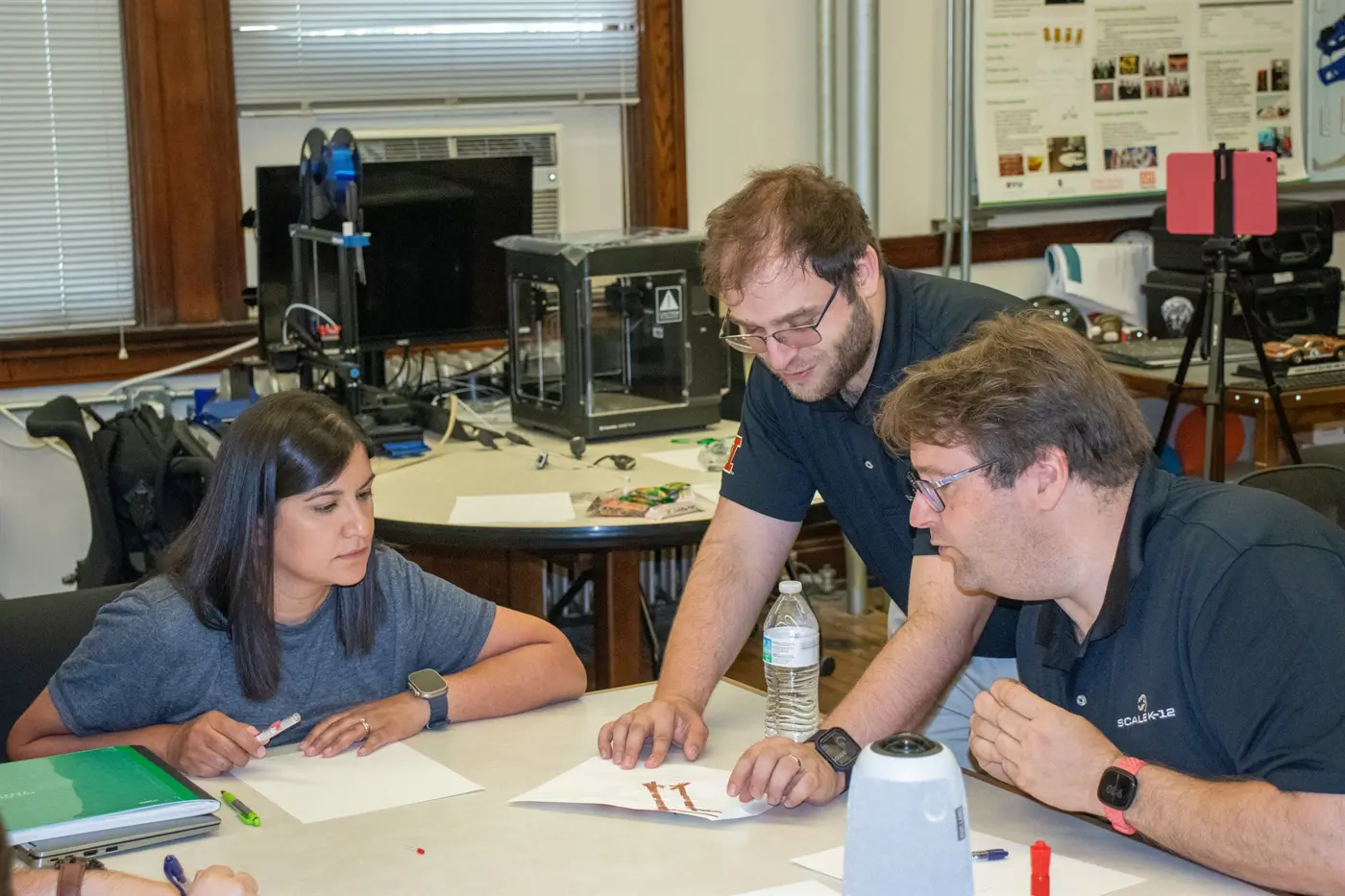Advancing Engineering Education: Global Pedagogy, Local Impact, and Those Who Teach
by Ashley Sims, Grainger College of Engineering / Aug 13, 2025

Josh Katz, a Ph.D. student in the College of Education at the University of Illinois Urbana-Champaign, has received the Best Student Paper Award in the International Division at the 2025 Annual Conference of the American Society for Engineering Education (ASEE).
His award-winning paper, “Impact of International Short-Term Faculty-Led Programs on Pedagogical Techniques in Engineering,” explores how global teaching experiences shape instructional practices among engineering faculty and what that means for the future of engineering education.
Expanding Global Learning Beyond Students
While global experiences for students are often emphasized in engineering curricula, Katz's research shifts the focus to a less-studied group: the instructors who lead these experiences. In an era of expanding short-term, virtual, and hybrid global programs, Katz set out to understand how participating in these efforts affects faculty perspectives, teaching strategies, and classroom innovation.
"This research evaluates instructors' experiences and instructional shifts after leading short-term faculty-led international programs in engineering. As demand for global learning opportunities increases, it is crucial to understand how instructors engage with these models and how their teaching practices evolve as a result," Katz said. "By analyzing survey data from instructors who have led these programs, we can refine and iterate program design and collaborations with international partners to better support future instructors' implementation efforts for their students."
His study centered on three models for global engagement at Illinois:
- Short-term faculty-led programs (7-14 day in-person programs abroad)
- Virtual global classrooms, known as COIL (Collaborative Online International Learning)
- COIL+, courses combining virtual collaboration with optional or required international travel
Using a 19-question post-travel survey distributed to instructors across these program types, Katz and his team collected both Likert-scale responses and open-ended reflections on pedagogical change. The qualitative data was analyzed using an inductive coding approach to uncover recurring themes.
Teaching Across Borders, Thinking Beyond Boundaries
The results revealed that instructors experienced notable growth in integrating cultural and technological dimensions into their pedagogy even beyond the context of the global courses themselves. Many reported shifts in how they selected course materials, approached assessment, and supported student collaboration. Some translated these insights into community-based research or new interdisciplinary collaborations, extending the reach of these experiences into other areas of their professional practice.
This interdisciplinary research team was supported through the AE3 Strategic Instructional Innovations Program (SIIP) and International Programs in Engineering (IPENG). In addition to Katz and advisor Professor Molly H. Goldstein (Industrial and Enterprise Systems Engineering), collaborators included Hannah Dougherty (IPENG), Professor Ernest-John Ignacio (Civil & Environmental Engineering), and Professor Brian Woodard (Assistant Dean for Undergraduate Programs, Aerospace Engineering).
From Global Research to Local Impact
Katz's dedication to engineering education extends beyond research and into educator engagement. This summer, he served as a co-instructor for SCALE K-12 (Scalable Asymmetric Lifecycle Engagement in K–12), a weeklong professional development program hosted by the Department of Industrial and Enterprise Systems Engineering.
Designed for educators from across the state, especially those from rural and under-resourced communities, SCALE K-12 introduced participants to engineering design and systems thinking through hands-on, adaptable activities they can bring directly into their classrooms. Katz co-led sessions on reverse engineering and systems thinking frameworks, helping teachers build both technical confidence and pedagogical strategies rooted in real-world problem solving.
"For my dissertation, I am analyzing workshop and classroom data from the Guardians of the GRID SCALE K-12 unit to examine how a community of practice functions among high school teachers and how their students collaborate during the curriculum," Katz explained. "I am particularly interested in how collaborative structures and tools support content understanding in computer science and microelectronics. I am also preparing a practitioner-focused publication that will share the unit and additional insights from the first implementation to help teachers adopt and adapt the unit in their own classrooms."
Shaping the Future of Engineering Education
"Josh's work represents a full-circle approach to educational innovation," said Professor Molly Goldstein. "He's identifying what works through research and then turning around and making those insights actionable for today's educators."
As engineering education evolves to meet the challenges of a connected world, Katz's research offers timely insights into how faculty development can lead to broader, more sustainable curricular change. His recognition by ASEE underscores the importance of global learning not only for students, but also for the educators who guide them.
This story was originally published by the Grainger College of Engineering's Industrial & Enterprise Systems Engineering.